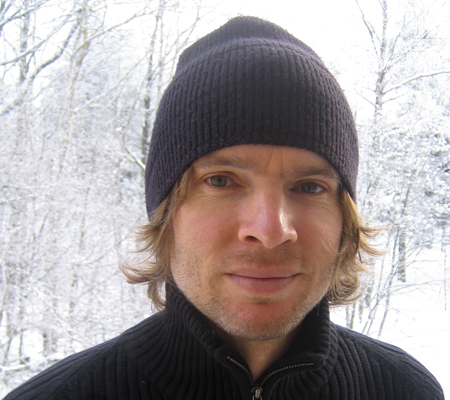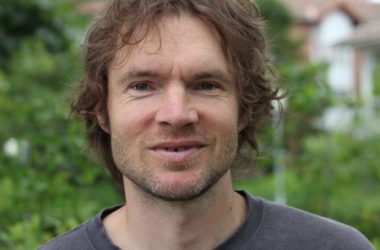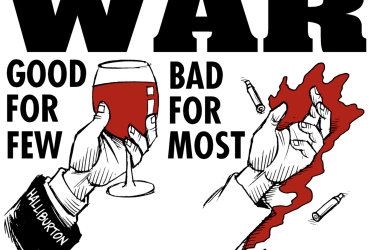By Gabriel Kuhn
This interview with Sam Buchanan was conducted in 2010 for the German book »Von Jakarta bis Johannesburg: Anarchismus weltweit«. Here is the English version, which was first published on Alpine Anarchist.
Can you tell us about the history of anarchism in New Zealand?
Anarchism has been around New Zealand as long as there have been people here, which isn’t all that long. The earliest inhabitants arrived around 1200 years ago – Polynesian settlers from the Pacific Islands, who developed a culture that later became known as Maori. This society was based on a decentralised political unit known as a hapu and comprising a number of extended families. Hapu were federated into iwi – larger groups claiming common ancestry (often translated as ‘tribe’) and some iwi had looser links with other iwi.
There were elements of anarchism in Maori society, as is usual with cultures that lack the technology of repression that makes undemocratic, minority-ruled cultures easier to maintain. Participation in discussion and debate over group decisions was broad, and the hapu’s work was planned and carried out collectively. Land and other resources were collectively owned. Other elements of Maori culture – the practice of warfare, the enslavement of prisoners and the tendency of the hapu and iwi leadership (rangatira) to follow hereditary lines – were clearly not anarchist.
European anarchism arrived with settlers in the late 19th century, some immigrants arrived with plans to live in collectively run settlements along broadly anarchist lines, but none of these flourished and there’s little written history of these experiments. In the early 20th century syndicalist unions were strong, but radical trade unionism faded after the 1913 general strike was crushed, though a radical element remains in some unions up to the present day.
There was considerable anarchist agitation in the late 1960s and 1970s, in trade unions, in wider activist movements such as the peace and anti-nuclear movements, anti-Viet Nam war protests, anti-apartheid groups and in counter-culture activities. Early feminist groups, such as Women’s Refuge, were influenced by anarchism.
Almost all the 1960s and 1970s generation of activists either changed their politics or became involved in other things by the late 1980s, but at this time a new wave of interest in anarchism began with the founding of a magazine, “The State Adversary”, in 1987 and the interest of the punk scene in anarchism. An anarchist group, the Committee for the Establishment of Civilisation, formed in Wellington in 1990, followed a couple of years later by an anarcha-feminist group. There has been continuous anarchist activity since then, though it has waxed and waned over the years. Anarchist activity grew steadily during the 1990s, while other activist groups declined. In the early 2000s there was a burst of anti-globalisation activity and opposition to free trade policies, but this has declined.
What have the most important issues been for New Zealand anarchists historically? And what are they today?
Anarchists are spread pretty thinly across a number of issues at present – there doesn’t seem to be a dominant issue or issues that anarchists are concerned with. Some are involved in international solidarity with Palestine, Burma, Chiapas and other majority world people. There’s a strong feminist current, particularly looking at sexual abuse issues.
A large number of anarchists participated in a recent climate camp to protest lack of action on climate change, and other environmental campaigns have involved a lot of anarchists, but the environmental movement as a whole has declined as the Green Party has siphoned off a lot of activist energy into party-building and the parliamentary bureaucracy. Some anarchists are involved in supporting strikes. There’s a lot of interest in gender identities and supporting alternatives to the traditional identity models. There’s also campaigning against New Zealand’s involvement in the war in Afghanistan and support for Maori activism. A few people are campaigning against the threatened privatisation of water supply and volumetric charging for water. Community gardens have become popular recently, part of a trend towards developing local alternatives to capitalist production.
There’s also a small Christian anarchist movement that challenges right-wing fundamentalism and consumerism and does a lot of work with people in poverty or from dysfunctional homes as well as other issues.
Is the Christian anarchist movement organized in any way, or is this a loose network of individuals?
There is an organization called the SPCA – South Pacific Christian Anarchists (the name is a joke – ‘SPCA’ is also the name of a very well-known animal welfare organization, there’s a lot of humour in the Christian anarchist scene) which includes people in both New Zealand and Australia and they’ve held several conferences in the last few years and produced a magazine. As I understand it, there are several Christian groups working on poverty issues, anti-military actions, community gardens and radical bible study, which would not name themselves ‘anarchist’ but which work along anarchist lines.
Decolonisation is an important theme for the SPCA as both Australia and New Zealand were British colonies with indigenous peoples still suffering from the effects of two hundred years of white settler domination and the activities of European missionaries and migrants. SPCA produce an occasional magazine and have connections with the www.jesusradicals.com people from the USA.
The Catholic Worker movement is active in Aotearoa/NZ with several small farms and pockets of adherents in the urban centres. This year three of them are on trial for breaking into an electronic spying base which intercepts satellite signals. The base is operated by New Zealand agencies, but the information is sent to the United States. They used pruning hooks to deflate the dome covering a satellite reception dish, then built a shrine and knelt to pray.
There are a number of other Christian groups working on poverty issues, anti-military actions, community gardens and radical bible study, which would not name themselves ‘anarchist’ but which work along anarchist lines.
How about the current anarchist movement in general? Is there a lot of organized activity?
It’s patchy at the moment – there’s a reasonable level of activity, but most of it consists of small scale events and irregular publications.
New Zealand isn’t the easiest place to organise a movement – part of the problem is geography. We’ve a country that is 75 percent of the size of Germany with 5 percent of the population, so getting a critical mass of people together can be difficult. Anarchists tend to move around a lot, and New Zealanders are keen travelers, which can make it hard to maintain projects.
We get a lot of daft thinking on anarchism from the United States in particular – much of which favours very loose, constantly changing organisations mostly based around social links. Such groups don’t last long enough to form good relationships and good working practices. Loosely organised groups encourage people to leave and form new groups rather than sort out the issues of the group, so there is little evolution and no accountability. However, two new groups, the Aotearoa Workers Solidarity Movement and Beyond Resistance formed in the last couple of years and both are committed to working on good organisation and developing a tighter political line. So maybe we are seeing a move away from the anti-organisational forms of anarchism.
The American ideas tend to be influential on younger New Zealanders who have grown up in a strongly neo-liberal environment and tend to be more focused on the individual than older people are. Prior to the onslaught of neo-liberal ideas that began with the election of the right-wing social democratic Labour Party in 1984, New Zealand was heavily influenced by socialist ideas and there was much more understanding of the way the surrounding society impacted on individuals. Neo-liberalism promoted a model of people as autonomous individuals, and younger New Zealanders, whatever their political preferences, are inclined to highlight individual action and individual responsibility, over that of society as a collective. One result of this is a focus on what happens at the point of consumption, rather than production. Capitalists pretend that the market simply produces what is wanted by consumers – so it is consumers who are to blame for the crimes of the capitalists.
Some anarchists seem to have accepted this free market logic – that the form of society results solely from free choices made by individuals. There’s a lot of concern with how an individual behaves, what they buy or eat, their living arrangements, relationships, sexual identity and so forth. All of these raise issues of concern to our liberation, but the essence of anarchism – finding ways of organising collectively to produce what we need, without the domination of a few, is somewhat disregarded.
There is also an inclination to ignore informal hierachies and poor processes in the interest of ‘getting things done’ or taking immediate action, which is problematic.
A couple of years ago, a number of anarchists were arrested under anti-terrorism laws. Can you tell us more about this? What’s the current situation of those arrested?
About 20 people were arrested, in connection with supposed ‘training camps’ in the Ureweras – a mountainous region of the North Island largely populated by Tuhoe, a Maori iwi with a long history of struggling for autonomy or independence. In 1916 their community at Maungapohatu was attacked by police in what was the final act of armed conquest of Maori land by the government.
The police made no allegations of actual acts of terrorism against the people arrested in 2007, they just claimed that people were preparing for violent acts. In any case, all the charges under terrorism laws have now been dropped. Those arrested were held in prison for between a week and four weeks then released on bail. Most are now facing firearms charges and a few are charged with being part of a criminal organisation.
The firearms charges are numerous, but vague, the police seem to be hoping that if they bring a large number of charges, the judge will believe that there must be some basis to them. You can be charged with ‘possession of a firearm’ even if you have never touched a weapon, it is enough to be close to a gun to be charged with ‘possession’, so it’s hard to defend. Rifles and shotguns are very common in rural New Zealand where hunting is a traditional working-class activity. For some months, those arrested had to make numerous court appearances and report to the police frequently, but this has largely ceased. The trial is set for August 2011, so it’s going to be hanging over these people’s heads for a long time regardless of the final outcome.
Among those arrested were not only anarchists, but also other political radicals, including Maori activists. Are there strong connections between anarchist politics and indigenous struggles?
For Maori anarchists, their position in a colonised country makes strong connections inevitable, but as a Pakeha (a New Zealander of European descent), I’m not really qualified to talk about their position.
Pakeha anarchists have done a lot of thinking about colonialism and our position as part of the colonial project, but I don’t think we’ve come to any conclusions that could be held up as a common position of the anarchist movement. We are still working on this.
In terms of practical connections between the anarchist movement and Maori political activists, they seem to change according to the political environment. When Maori groups are initiating activities that anarchists feel sympathetic to, such as land occupations or protests, anarchists tend to come out in support. Unfortunately, there’s less support for Maori projects that are less confrontational, though this is beginning to change.
Pakeha anarchists will usually support Maori when they have the skills and resources to do so, but it isn’t always appropriate for Pakeha anarchists to participate in Maori activities. Maori need to keep control of their own initiatives and choose who to receive support from. A group of anarchists turning up uninvited can be a nuisance and sometimes an embarrassment.
Are you able to tell us more about the main concerns and goals of Maori activists?
Well, many of their concerns would be the same as for any other activists – healthy prosperous communities, a clean and healthy environment and a degree of freedom – specifically Maori concerns are many and varied.
In the last few decades, progress has been made in asserting Maori culture and reinvigorating the Maori language, but much less progress has been made in the economic sphere. Maori are much more likely to be unemployed, in prison or lack formal educational qualifications compared with Pakeha. The Pakeha ruling class has been unwilling to give up control of significant economic resources. After rising Maori protest in the 1970s, the government put a legal process known as the Waitangi Tribunal in place, which enables Maori iwi to claim reparations from the state for land that was stolen and other injustices resulting from colonisation. The Waitangi Tribunal is bureaucratic and takes years, or decades, to process a claim. Rather than assessing reparations on the basis of what Maori lost, compensation is negotiated with the government, which tries to get Maori iwi or coalitions to accept the smallest settlement possible, regardless of the fairness of the deal.
Some deals have been struck and compensation paid, but the process often creates further resentment and cash payments have lead to the creation of ‘iwi corporates’ – business groups run by Maori with iwi members as shareholders. Some have been very successful as businesses, but are criticised for producing a Maori capitalist class and doing little for working-class Maori.
Since the 1930s, Maori have largely voted for the Labour Party, but in the last decade the pattern has changed. Currently, much of the Maori vote goes to the recently-formed Maori Party which is currently in government in coalition with the right-wing National Party. The Maori Party’s policies are all over the political spectrum. Maori have definitely gained political strength by breaking with Labour, which largely took their vote for granted and didn’t do much to meet their concerns. The parliamentary political parties are now showing much more interest in issues of significance to Maori, as they see the possibility of picking up votes, but whether they actually deliver anything of value to Maori remains to be seen.
A recent issue has been the argument over ownership of the ‘seabed and foreshore’ – the coastal areas below the high tide mark. Prior to colonisation these areas where regarded as owned by particular hapu, but many Pakeha believe this area is public land, despite large chunks of it being owned by private individuals or corporates.
In 2003, after a Maori group was refused permission to build a mussel farm, a court ruled that Maori groups had the right to go to court to make a claim of ownership over areas of the seabed and foreshore that they had owned before colonisation. The court never ruled on ownership as, after an outcry from conservative groups – who claimed Maori would stop people going to the beach, though Maori never suggested doing so – the Labour Party government passed a law preventing Maori taking their case to court and giving ownership to the government. Many Maori regarded this as theft on a grand scale. This law is to be scrapped under a deal made between the Maori Party and the National Party, but it is unclear what will replace it.
At a local level, many Maori activists are concerned with building and strengthening their communities and developing resources. There has been a growing feeling among Maori that they must give up hope of effective government support and become more self-reliant.
The Maori Party is looking for ways to have government services delivered locally by Maori groups, rather than by central government departments, but the plan is vague. It may mean that Maori groups simply become contractors to the government, paid to do jobs the government does badly, such as providing social welfare and trying to develop employment opportunities. Maori can then be blamed for anything that goes wrong, while the government still holds the real power.
Are anarchists in New Zealand connected to political activists on South Pacific Islands?
Links are made from time to time, usually when a particular issue crops up in a Pacific country, but there’s few permanent links at present, except for some on-going relationships between Maori anarchists and Pacific Islanders.
How strong are the connections to Australian anarchists?
Not particularly strong, we have contact from time to time, largely through people visiting one or the other country. People tend to see Australia and New Zealand as much the same place, but Australia is actually quite a distance away. It’s about as far from Wellington to Sydney as from Berlin to Reykjavik, a two-hour flight, and the rest of Australia is even more distant.
On the positive side, being rather cut off from the rest of the world has helped the local anarchist movement to create its own path. We have lost this advantage somewhat in recent years due to the internet. Before that we had small amounts of high quality communication with the rest of the world and did a lot of our own analysis. The internet, like other forms of mass media, tends to favour those who produce material in the largest volumes, so those who shout the loudest dominate debate.
Today we are swamped by huge amounts of information and seem to have trouble sitting back and thinking about what it all means. People often appear to be choosing strategies and areas of focus according to the fashions set by anarchists overseas, rather than figuring out what is appropriate to our own time and place.
What does an anarchist vision for New Zealand look like? And what hopes do you have for anarchism globally?
I suppose a vision for New Zealand is much the same as anywhere else – a society of democratic, autonomous communities organising together according to their needs. Some communities might choose to speak Maori and follow Maori traditions, others might want to blend cultures or invent their own. Personally, I’d like to see a few more antique aeroplanes, more native birds and lots of pizza with smoked fish.
More generally, I’m hopeful that we are getting away from two strands of anarchist thinking. Firstly, the belief that capitalism is doomed and we just need to wait for it to collapse. It isn’t doomed, and won’t vanish until it is clear to a large number of people that a realistic alternative exists. We need to convince people of this.
The second problematic belief is the fondness some anarchists have for conflict. I blame the Seattle protests for this – it gave people the feeling that we could take on the state in the streets and win. Actually, the state is far better at conflict and violence than we are – such things come naturally to it. Every now and then we might gain a victory by catching the state off-guard, but we can’t rely on that. We really do need to build things and make better links before we have a chance of winning.
The problem for anarchists is that what we build is fragile, but what capitalism and the state builds is concrete. What I mean by that is that we can spend decades building a community that can be quickly destroyed by the building of a motorway, an ecosystem thousands of years old can be destroyed in a few weeks by a mine or an oil spill, a trade union by a factory closure or a change in law, an organisation by internal dissension or the actions of a minority. These things, once destroyed, can take years or hundreds of years to rebuild, and in the process of their destruction, a lot of people will be severely damaged.
I see anarchism, at least in the rich world, as being strongest when anarchists are working in the communities where they live. Communities are the most valued area of people’s lives – workplaces being now seen as a necessary evil, little valued and to be avoided as much as possible – and communities are a place where still people expect to have control.
Truly democratic workplaces and political organisations are alien to most people, but they still believe that their community should be under their own control. They feel a sense of ownership about it and hope to protect it. This is where people are most likely to feel an immediate sympathy with anarchist ideals.
We need to express those ideals in plain language, without huge amounts of rhetoric and political jargon, and the people expressing them need to avoid militant posturing and arrogance, and be aware that change isn’t going to come quickly.
The destruction of the sense of community is a real threat. Capitalism is creating a culture of individualism that is rootless, has a fake self-reliance and is nomadic. People increasingly have to move from place to place and job to job, so a feeling of community is never built up. It’s hard to do useful work when people are so quickly moving on, in part due to a lack of secure jobs and housing, and in part because it has become cheaper and easier to move and because fewer people practice a trade. Unlike traditional nomadism, people move as individuals, or at best as family groups, not as a tribe or community.
People are encouraged to be self-reliant, but actually become reliant on the market and having an income. Instead of relying on people around them they are told they should be concerned with gaining enough money to not have to depend on others, and to instead purchase the goods, services or other requirements they have.
All this makes it difficult to develop effective organisations with good decision-making practices, exactly the things anarchists need to get good at to win. We should be able to attract people on the strength of being good at these things. When I go into the workplace, or engage with government, I’m stunned by the inability of the ‘professionals’ involved to facilitate a meeting, follow a process or develop a plan, or think critically.
Anarchists are great managers (even if they hate the term!) and great thinkers, and here in New Zealand at least, we need to realise this and develop more confidence in getting out and working with people who need our knowledge and insights.
Anarchism is still the best idea anybody has thought of, and trying to make it happen is the most useful thing you can be doing with your time.
*
Sam Buchanan is a member of the Wildcat Anarchist Collective in
Wellington, Aotearoa (New Zealand). He is a first-generation Pakeha
colonist of British descent and a gardener, interior decorator and
communications consultant and likes comic books, old-school punk,
building things, cooking and ducks. He is the author of Anarchy: The Transmogrification of Everyday Life.
More blogs from Gabriel | Back to Gabriel Kuhn’s Author Page






